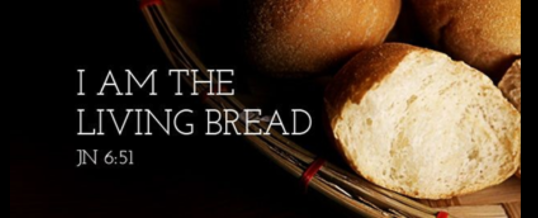
For those of you who enjoy reading, I’m sure have read at least one book in your lifetime that you had a hard time putting down. If the author was good, they were able to get your attention and keep your attention from chapter to chapter. Usually at the end of one chapter, there was a “hook” that grabbed hold of you and made you want to read the next chapter. This “hook” pushed you deeper into the plot or it presented you with an unresolved situation and forced you to ask yourself, “I wonder how this is all going to work out? I better read the next chapter
Our minds must be geared to endings, resolutions, and outcomes. We hate having things up in the air not knowing where they will finally land. I’m that way when it comes to books and with the plethora of these “home improvement shows.” There’s no way I can just see the house before the renovations without also seeing the house after it’s been remodeled.
However, there is a little bit of a danger, in the spiritual life, about moving too quickly to resolutions, answers, and anything that seems too black and white. Of the 183 questions Jesus is asked in the four gospels, he gives answers to only three of them. Jesus favored putting people on spiritual journeys over and against furnishing them with answers. He never told anyone, “Just google it!” He would rather people puzzle a parable in their minds and grow into their own answer rather than accepting blindly someone else’s pre-packaged answer. Those of you who are parents may have appreciated your own parents’ advice, but once that first child came along, you knew that parenting was going to be a journey.
In the same vein, when Jesus speaks about us eating and drinking his body and blood, we might immediately think he’s talking about Eucharist. I certainly think that way. Yet, this is John’s Gospel. John, in his gospel, devotes five chapters (13 through 17) to the Last Supper, but in all of those chapters, he does not include the institution of the Eucharist. Nowhere, in John’s gospel, does it say that Jesus sat down with the 12, broke bread and poured wine, and said, “This is my body; this is my blood. Eat and drink.” Nowhere! Nowhere, in the Gospel of John, does Jesus celebrate Eucharist. That must come as a shock to some Catholics who feel they have to participate at Mass every day of the week. Jesus only celebrated Eucharist once in the gospels of Matthew, Mark and Luke, and not at all in the Gospel of John.
When Jesus says, “My flesh is true food and my blood is true drink” that is the revelation, but it is not the path to the revelation. You can say, “Jesus’ flesh is true food and his blood is true drink” a thousand times a day, but it will not change or deepen your consciousness. I really do believe Jesus’ flesh is true food and his blood is true drink, but just repeating that over and over again is not going to help me grow spiritually. Don’t ever mix up the revelation, the “answer” with the path that each of us has to journey to the revelation. It would be like mixing up reading a book about parenting with the journey of parenting itself. Sadly, most people in the pew, and most priests, prefer answers over journeys. It’s just easier. Anyone who has told me about a priest who can get them in and out of Mass within 20 minutes is someone who is not interested in journeying seriously in their faith.
If I was to take an exit poll after Mass today and ask each of you here if you felt perfectly fulfilled and satisfied, because you had just participated in Mass, I bet you the vast majority of us would say that our experience here fell short.
The late Fr. John Sandell, in one of his books, suggests that we should always leave Eucharist a little hungry. A good writer leaves you hungry for the next chapter. I get the feeling, for Fr. John, Eucharist isn’t the “be all” and “end all.” Eucharist is the invitation into a journey of faith.
He wrote: “Perhaps we must leave here a little hungry, but more aware of the value of that for which we hunger. If Eucharist satisfied our hunger for love, there would be no need to reach out to other people in an effort to build love. If the Eucharist satisfied our hunger for creativity, there would be no need in us to rebuild our world in newer, richer, better, more satisfying ways. If the Eucharist satisfied our hunger for life, there would be no need in us to counter those who deal in death, no need to comfort the sorrowful, or to ease the pain of those around us. If the Eucharist satisfied our hunger for goodness, there would be no need in us to stir up goodness in the world around us. If the Eucharist satisfied our hunger for God, there would be no need to seek God anywhere else. Far better that we leave here hungrier than ever for those things, and more determined than ever to see that hunger satisfied. A well-done ceremony is a fine thing, but a re-created world is much more what Christ means by Eucharist.” (Seasons in the Word, p. 88)
~Fr. Phil
AUG
2024

About the Author: